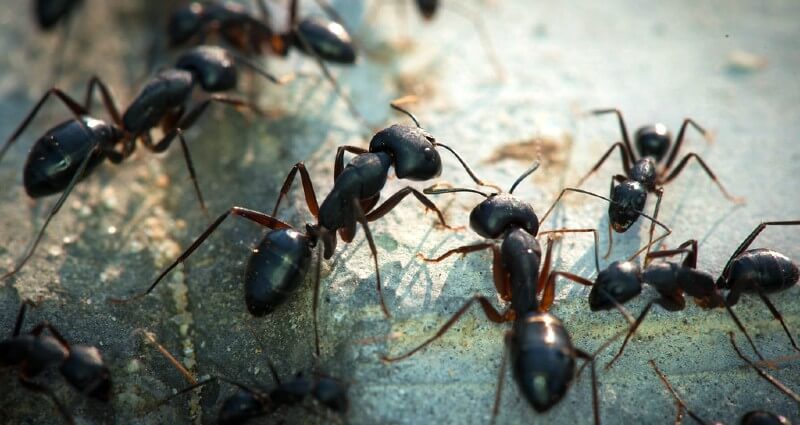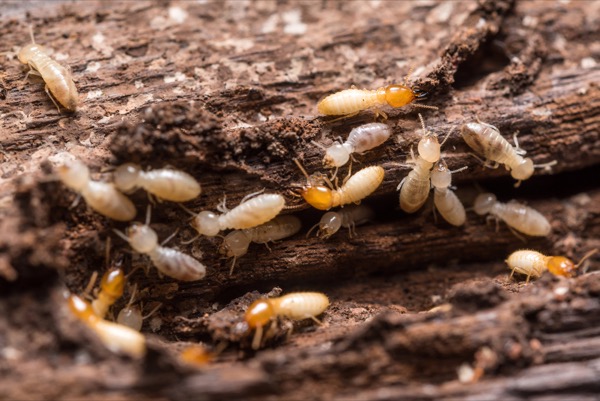Specialist Termite Control Services: Safeguard Your Home from Termite Damage
Specialist Termite Control Services: Safeguard Your Home from Termite Damage
Blog Article
Ecological Influence of Pest Control: Balancing Efficiency With Sustainability
The environmental impact of parasite control is a crucial issue that calls for a delicate balance in between achieving performance in handling insects and guaranteeing sustainability of our communities. As we strive to shield our plants, homes, and health and wellness from the threats postured by bugs, the methods we employ can unintentionally hurt the atmosphere. From using damaging chemicals that permeate right into our soil and water to the unintended repercussions on non-target species, the repercussions of conventional parasite control methods are far-ranging. There are arising techniques that supply hope for a much more lasting approach to pest management. These options not just purpose to resolve the instant parasite problems however likewise take into consideration the lasting health and wellness of our planet.
Unsafe Chemicals in Parasite Control
The application of harmful chemicals in pest control poses significant environmental and wellness threats that necessitate mindful factor to consider and reduction methods. Pesticides, insecticides, and herbicides are typically used to eradicate pests, however their prevalent application can result in unintentional consequences. These chemicals can contaminate dirt, water resources, and the air, impacting not only the targeted pests yet additionally beneficial insects, wild animals, and people.

To attend to these dangers, incorporated bug monitoring (IPM) strategies are being advertised as an extra lasting choice. IPM entails a mix of approaches such as organic control, environment adjustment, and the targeted use pesticides as a last hope (ant control stalling nc). By embracing an all natural approach to pest control, we can decrease the ecological and wellness impacts linked with hazardous chemicals while properly handling pest populaces
Influence On Non-Target Species
Considering the unplanned repercussions of pest control approaches, the effect on non-target species is a critical facet that requires thorough examination. While insect control actions intend to target particular pests, various other microorganisms in the community may be inadvertently influenced. Non-target varieties, including useful bugs, birds, mammals, and also plants, can experience direct or indirect harm from chemical applications or organic control techniques.
Chemicals can have sub-lethal or deadly impacts on non-target species. Pesticides developed to combat a specific bug pest may damage review pollinators like or natural predators such as ladybugs. Furthermore, chemical deposits can gather in the environment, impacting non-target microorganisms over time. Similarly, biological control representatives, otherwise species-specific, can pose dangers to unplanned targets, disrupting the environmental equilibrium.
To reduce the influence on non-target types, integrated parasite monitoring (IPM) approaches that stress an all natural strategy to pest control are advised. These approaches focus on the usage of eco-friendly methods, lessening damage to beneficial organisms while effectively managing pest populaces. Performing thorough risk assessments and keeping track of the outcomes of pest control initiatives are essential actions in safeguarding non-target varieties and advertising total ecosystem wellness.
Dirt and Water Contamination
Unintended ecological effects of parasite control approaches expand past affecting non-target types, with substantial effects for dirt and water contamination - ant control services. Chemicals, herbicides, and chemical plant foods made use of in insect control can leach into the soil and pollute groundwater, posing a danger to both earthbound and water environments.
Water contamination is another essential problem associated with bug control practices. To alleviate dirt and water contamination from insect control activities, integrated parasite administration approaches that prioritize sustainability and lessen chemical inputs are critical.
Air Pollution From Pesticide Use
Direct exposure to airborne chemicals throughout farming applications postures a significant problem for air contamination control steps. In addition, pesticide drift, where pesticides are lugged by the wind to unintended areas, can lead to the contamination of neighboring communities and water bodies.

Approaches for Lasting Pest Control
In the world of farming practices, carrying out sustainable insect control methods is paramount for keeping eco-friendly balance and securing crop yields. Lasting parasite control emphasizes the usage of eco friendly techniques to manage bug populaces successfully while decreasing harm to non-target microorganisms and ecosystems. Integrated Insect Monitoring (IPM) is a commonly embraced approach that combines organic, social, physical, and chemical control methods to attain long-lasting bug administration remedies.
Crop rotation and diversity are additionally effective techniques to disrupt pest life cycles and create much less positive problems for parasites to prosper. Eventually, by integrating these lasting pest control methods, farmers can achieve an equilibrium between pest administration effectiveness and environmental stewardship.
Conclusion
Finally, the environmental effect of pest control techniques have to be meticulously thought about to stabilize efficiency with sustainability. Harmful chemicals utilized in parasite control can cause soil and water contamination, air pollution, and damage non-target varieties - termite control. It is crucial to execute lasting parasite control strategies to lessen these adverse effects on the atmosphere and advertise a much healthier ecosystem for future generations
By adopting an all natural approach to pest control, we can reduce the ecological and health and wellness influences connected with unsafe chemicals while efficiently taking care of pest populations.

To alleviate the air pollution triggered by pesticide usage, it is important to adopt integrated pest monitoring methods that prioritize the usage of non-chemical insect control methods, such as plant turning, natural killers, and resistant plant varieties. Sustainable pest control highlights the use of environmentally pleasant techniques to take care of bug populations properly while reducing injury to non-target microorganisms and environments. Integrated Bug Management (IPM) is a commonly adopted method that combines organic, cultural, physical, and chemical control approaches to attain lasting insect management solutions.
Report this page